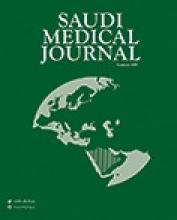Blood transfusion saves hundreds of patients’ lives every day, but adequate blood supply is needed to continue helping those people who are in need of blood transfusion. Encouraging and promoting voluntary blood donation is a goal of every country in the world. The World Health Organization (WHO) aims for blood donations to come from voluntary donors from all over the world, and a target date is set to be the year 2020. Today, only 60 countries are able to provide a blood supply through 100% voluntary unpaid donors, with 42 countries still depending on family and paid donors.1
As highlighted by Abolghasemi et al,2 the safety of the blood supply is much higher in frequent voluntary blood donors compared with family and/or paid donors. In order to raise awareness of the voluntary blood donation importance, and to recognize voluntary blood donors, the WHO decided to assign one day every year to celebrate volunteer blood donors and named that day the “World Blood Donor Day” (WBDD). The WHO celebrated the first WBDD on 14th June 2004, since then, this date became an occasion celebrated all over the world every year.1 The 14th of June was selected in memory of Karl Landsteiner, (Karl Landsteiner, 14 June 1868-26 June 1943) who discovered the ABO blood groups in the year 1900.3
The WHO assigns a theme every year for the WBDD, and the theme for this year is “Thank you for saving my life.” The campaign aims to share stories from people whose lives have been saved through blood donation, in order to motivate regular blood donors to continue giving blood and other healthy people who have never given blood, especially young people, to begin donating blood voluntarily. This year, WBDD have the following objectives; to thank blood donors for their life-saving donations, to promote regular voluntary unpaid blood donation, to create wider public awareness of the need for regular donation due to the short shelf-life of blood components, and to encourage existing, and potential donors to donate blood at regular intervals, focus attention on donor health and the quality of donor care as critical factors in building donor commitment, willingness to donate regularly, and persuade ministries of health to show their appreciation of regular voluntary unpaid donors, and provide adequate resources to provide quality donor care.1
In the Kingdom of Saudi Arabia (KSA), WBDD is celebrated by having awareness campaigns nationwide. These campaigns include many activities: scientific meetings, lectures, publication of articles on national newspapers and journals, activities in different public areas to improve the awareness of voluntary blood donations, which include mobile blood drives, and using audio and visual media to help in promoting the theme of this year’s WBDD.
Patients with hemoglobinopathies particularly sickle cell disease, and hematologic malignancies depend on blood transfusion as part of their course of treatment, and these categories of patients consume a major part of blood supplies in KSA. Whole blood is collected in individual hospitals’ blood banks who mainly supply their patients, and if surplus supplies are available, some larger hospitals supply the smaller and private hospitals with blood and blood products.
This event in KSA is an important opportunity to promote voluntary donation in the community, where approximately 40% of blood comes from volunteer donors while 60% from replacement donors.4 Appreciating volunteer blood donors comes from the royal court office through “Blood donation King’s medal of merit”, which is given to frequent blood donors.
Save the date, 14th June 2015 and celebrate giving the gift of life.
Student Corner
We invite students from a variety of medical disciplines to submit original contributions based on their supervised research.
The Student Corner of Saudi Med J aims to help students explore research opportunities and network with other peers and mentors in the same field.
Submission Guidelines
Submitted Abstracts should include the following:
Title should be descriptive
Author’s names and affiliation(specify college level/year, academic degree of Senior Author)
Abstract must be structured and not more than 300 words
The following are the typical headings:
Objectives (background, why the study was done, specific aims)
Methods (setting, date of study, design, subjects, intervention, and analysis)
Results (findings, data, and statistical tests) and
Conclusion (general interpretation of results)
General Information on Abstract Submission
Submitted Abstracts should be co-authored by a Senior Supervisor
Abstracts will be reviewed by Student’s Corner Section Editor
There is no fee to submit an Abstract
Ethical Approval should be provided
- Copyright: © Saudi Medical Journal
This is an open-access article distributed under the terms of the Creative Commons Attribution-Noncommercial-Share Alike 3.0 Unported, which permits unrestricted use, distribution, and reproduction in any medium, provided the original work is properly cited.






